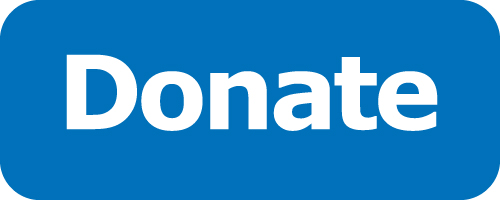|
April 11 2018
|
|
|
|
|
|
|
|
|
|

Dear Max:
It was a disappointing legislative session for Chesapeake PSR’s health, environmental and peace priorities. Here is a summary of how the major bills we supported fared. With significant changes expected in the makeup of next year’s General Assembly, we will continue to organize support for our priorities during the summer and fall.
Restricting a Nuclear First Strike
This resolution sponsored by Delegate Pam Queen would have supported Congressional efforts to prohibit the President from having sole authority to initiate a nuclear launch. Unfortunately, the resolution was defeated in the Rules Committee. The resolution would have put pressure on the state’s Congressional delegation to support Senate Bill 200 and House Bill 669, making it illegal for the President to initiate a nuclear launch. So far Congressmen Sarbanes, Cummings, and Raskin have signed on to HR 669 and Senator Van Hollen to SB 200. With so much at stake, we will continue to push elected officials at the local, state and federal levels to support efforts ensure Congress exercises its constitutional duties.
100% Clean Renewable Electricity
Delegate Shane Robinson withdrew HB 878, the 100% Clean Renewable Energy and Equity Act, which was strongly supported by Chesapeake PSR, Food and Water Watch, the Sierra Club Maryland Chapter, and Environment America. The other major energy bill introduced, which proposed to expand the state's existing Renewable Portfolio Standard to 50%, was also withdrawn after a negative vote in sub-committee. Withdrawing the 100% Act makes reintroduction of this bill or something very similar, easier to do next year. One bit of good news: the clean energy debate in Maryland has fundamentally shifted: it is no longer a question of if we can move to 100% clean energy, but how.
The Toxic Pesticide Chlorpyrifos
The Maryland General Assembly failed to pass a ban on the toxic pesticide chlorpyrifos because of fears pushed by the golf course, agriculture and chemical lobbyists, despite overwhelming evidence that that chlorpyrifos harms children. United States Environmental Protection Agency (EPA) scientists urged a federal chlorpyrifos ban after finding that there were no safe tolerance levels for humans and that chlorpyrifos damages the nervous system, only to be overruled by EPA Administrator Scott Pruitt. The insecticide is also linked to cognitive and motor decline in children who are exposed through drinking water and memory decline in farm workers. In addition, chlorpyrifos is associated with dizziness, nausea, preterm births and lowered IQ scores.
Community Healthy Air Act
Likewise, the Community Healthy Air Act did not pass. The legislation would have required the Maryland Department of the Environment (MDE) to conduct a one-time study to identify air pollutants emitted by large, concentrated animal feeding operations (CAFOs), assess any potential public health harms and report their findings to the Maryland General Assembly by Dec. 15, 2019. This bill came at the request of residents on Maryland's Eastern Shore concerned about the high rates of asthma and other illness in their communities. Research shows that CAFOs release huge amounts of air pollution, including ammonia, hydrogen sulfide, methane and particulate matter, all of which can cause troubling human and environmental health impacts.
Reducing Blood Lead Levels
Finally, the Maryland General Assembly did not pass legislation to amend Maryland's definition of "elevated blood lead level" (EBLL) to make it consistent with the policies and recommendations of the Centers for Disease Control and Prevention (CDC) and the American Academy of Pediatrics (AAP). This change would lower the level at which the state must conduct an environmental investigation into the causes of a child's lead poisoning from 10 mcg/dL to 5mcg/dL. Because no lead level has been shown to be safe in children, CDC has changed its approach from having a lead "level of concern" to using a reference level of 5 mcg/dL to identify children with blood lead levels that are much higher than most children's levels and who require case management. The AAP also urges state governments to provide resources for environmental case evaluations and case management of children who have blood lead concentrations of greater than or equal to 5 mcg/dL.
We are dispointed that none of these common sense proposals were enacted into law. But we will be back next year!
Sincerely,
 Tim Whitehouse Executive Director |
|
|
|
|
|
Chesapeake PSR is a strong health voice on issues of environment, social justice and peace. Our volunteer activists are medical and health professionals and interested individuals. Please volunteer with Chesapeake PSR, donate, and follow us on Twitter and Facebook.
|
|
Manage Email Subscriptions | Visit Us Online
  Chesapeake Physicians for Social Responsibility 325 East 25th St, Baltimore, Maryland 21218 t 240-246-4492 twhitehouse@psr.org |
|
Thursday, April 12, 2018
It was a disappointing legislative session for Chesapeake PSR’s health, environmental and peace priorities.
Subscribe to:
Post Comments (Atom)

No comments:
Post a Comment